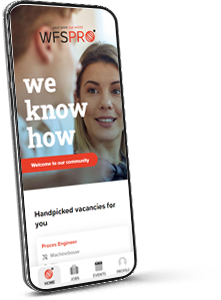You might have noticed that soft skills are appearing more frequently in job postings. Soft skills are becoming increasingly important to employers, something we at WFS PRO are also seeing more and more with our clients. This isn’t just something only we observe with our clients; it’s a global shift in employer needs. In this article, we’ll explain what soft skills are, where this trend comes from, and how you can adapt to it.
What Exactly Are Soft Skills?
Soft skills are non-technical skills, primarily focused on behavior and personal attributes. Soft skills include emotional, social, and personal abilities. The most common, or most sought-after, soft skills are listed below:
- Strong communication
- Teamwork
- Leadership
- Adaptability
- Problem-solving
Where Does This Trend Come From?
Such a trend, or mentality shift, doesn’t come out of nowhere. COVID-19 has played a significant role in the demand for soft skills. During the pandemic, many people had to work from home, which has led to remote work becoming increasingly common even after the pandemic. Many employees appreciate the flexibility of remote working, and some companies even encourage remote work or don’t have a fixed office. However, remote working doesn’t mean working alone; in fact, soft skills are especially important in remote work, particularly communication skills, as you are always communicating via email, (video) calls, or phone.
Developments like automation, digitalization, and robotization also received a significant boost due to the pandemic. Despite these advancements, the human aspect remains important, and soft skills cannot be replaced by a computer system.
What Does This Mean for You?
First of all, make sure to mention your soft skills on your resume. List your soft skills alongside your (hard) skills because they shouldn’t be overlooked. Only mention relevant soft skills; often, the desired soft skills are already mentioned in the job posting under the job or candidate profile. Tailor your skills on your resume to match these, but always be honest and only list the skills you truly possess. Additionally, it’s important that your soft skills are reflected in your work experience. Only describe (soft) skills that are related to your described work experience.
Moreover, there are plenty of opportunities to work on your soft skills and further develop yourself, both professionally and personally. At WFS PRO, employees can access the online training platform GoodHabitz, a platform full of training courses to help you (further) develop your soft skills.
